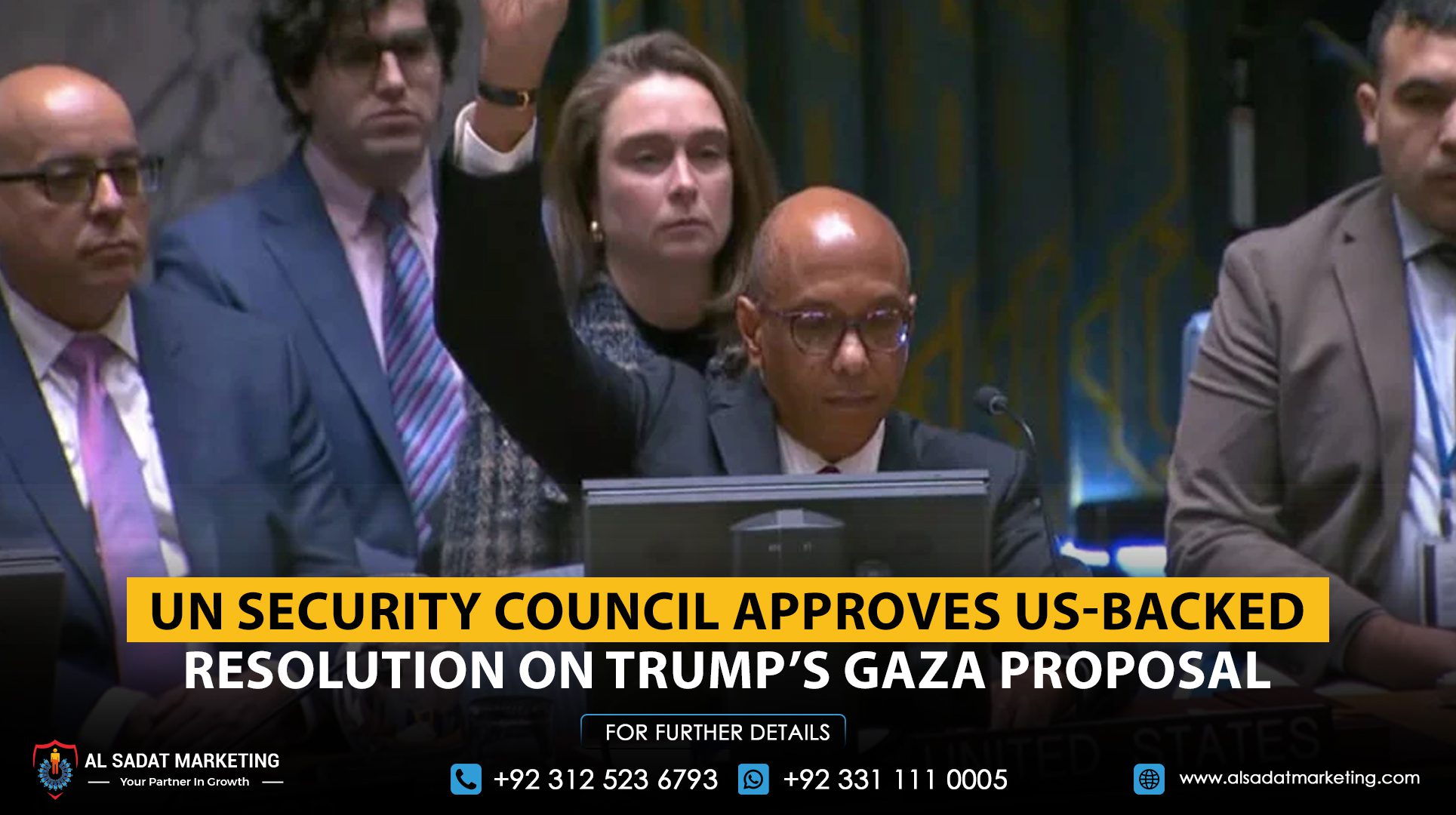The UN Security Council has approved a US-drafted resolution supporting President Donald Trump’s Gaza plan, giving formal backing to a new international stabilisation force and a transitional governing body for the enclave. The move marks a major step in launching the first phase of the Trump plan, which includes a ceasefire and a hostage-release deal agreed last month by Israel and Hamas.
The resolution also gives international legitimacy to the proposed “Board of Peace,” a transitional authority meant to manage Gaza’s reconstruction and economic recovery. Several countries considering sending troops had pushed for UN approval before joining the mission.
Under the plan, member states can take part in the Board of Peace, which will work closely with the newly authorised International Stabilisation Force (ISF). The ISF is tasked with demilitarising Gaza by removing weapons and dismantling military infrastructure.
Hamas immediately rejected the resolution, saying it will not disarm and describing the move as an attempt to impose an “international guardianship” on Gaza. The group maintains that its armed struggle is legitimate resistance. This stance sets up a direct confrontation with the ISF, which has a mandate to enforce demilitarisation on the ground.
The United States defended the plan as a path toward long-term stability. US Ambassador Mike Waltz said the resolution offers “a possible pathway for Palestinian self-determination” and aims to replace conflict with development. Trump welcomed the decision, calling it a historic moment and promising more announcements about the Board of Peace soon.
Russia and China abstained from the vote, allowing the resolution to pass but expressing concern about the limited role the UN will play in the plan. Russian Ambassador Vasily Nebenzya said the Council was giving approval to a largely US-led initiative without full clarity on how the governing body or the stabilisation force will function.
Diplomats say the Palestinian Authority’s support for the resolution helped prevent a veto from Moscow.
Inside Israel, the plan has sparked political debate, especially over language hinting at a possible pathway to Palestinian statehood. The resolution says conditions may now exist for a credible process, depending on reforms by the Palestinian Authority. Prime Minister Benjamin Netanyahu, facing pressure from right-wing allies, repeated that Israel does not support a Palestinian state and vowed that Gaza will be demilitarised “one way or another.”
Analysts say the resolution offers an opportunity to reinforce the ceasefire but warn that its success depends on political trust, accountability, and meaningful Palestinian involvement.
The ISF will function differently from traditional UN peacekeeping missions. It will not be run by the UN but will operate with Security Council approval under the Board of Peace. According to officials, the force will coordinate with Israel, Egypt, and newly trained Palestinian police to secure borders and carry out demilitarisation. Israeli forces will gradually withdraw, except for a limited perimeter security role.
The mission is expected to draw troops from a coalition of states, including Muslim-majority countries such as Indonesia and Azerbaijan. It will be funded and managed outside the UN’s usual peacekeeping structure.
Humanitarian organisations say a mission with the authority to use force is necessary to stabilise Gaza after months of destruction and displacement.










